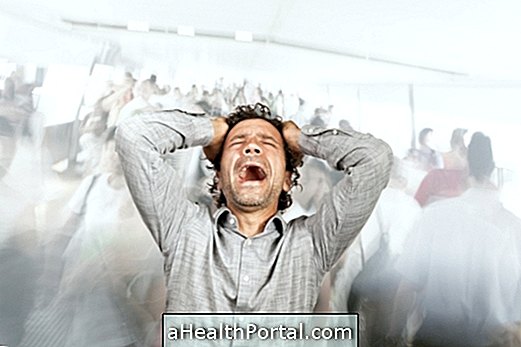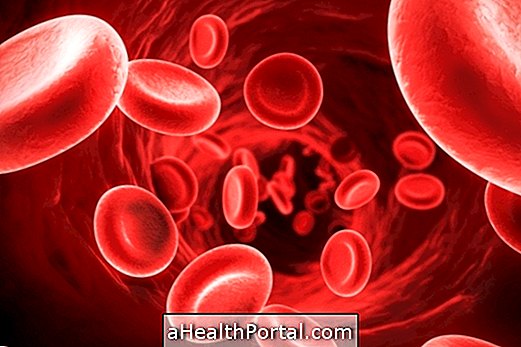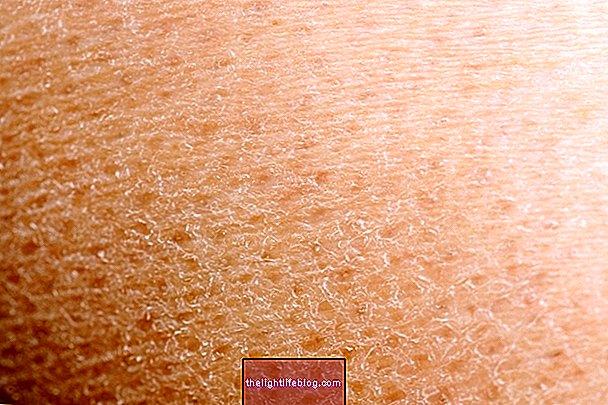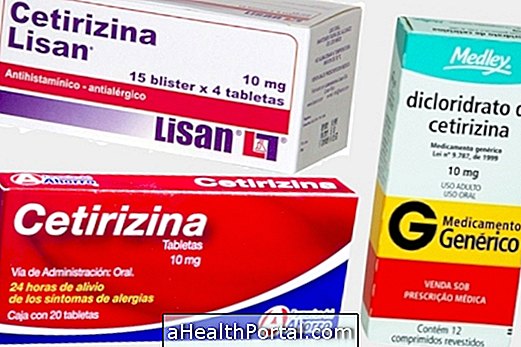The treatment for anorexia nervosa mainly includes group, family and behavioral therapies, as well as personalized diet and the taking of dietary supplements, to combat the nutritional deficiencies caused by the disease that prevents the patient from feeding properly.
In addition, it may be necessary to take antidepressant medications, and in more severe cases, hospital admission may be necessary for the placement of a nasogastric tube to ensure correct feeding.

Food for anorexia
The nutritional treatment for anorexia nervosa aims to help the patient to make adequate food to keep the body healthy and avoid diseases.
During the treatment, a diet plan is made that is appropriate to the tastes and lifestyle of the patient, and it may be necessary to take supplements that do not make you fat but give the body all the vitamins and minerals necessary to be healthy.
The nutritional treatment thus helps to combat the symptoms of anorexia nervosa which are consequences of lack of food such as thin hair, hair loss, weak nails, constipation or dry skin, for example. Here's how to feed in the following video:

Supplements for anorexia
The supplements that the doctor or nutritionist can indicate are multivitamins, such as Centrum, that help replenish vitamins and minerals. This type of medicine can be taken for about 3 months, and the need for it should be reassessed after this period.
Supplements have no calories and therefore do not gain weight, but should not be taken as a substitute for healthy eating and with the amount of calories needed to regain health.
Antidepressants for anorexia
The doctor may recommend taking medicines for anxiety and depression, which increase well-being for a certain period of time. These help stabilize mood, avoiding the relapses that can lead to body image-related paranoia, which can compromise treatment success. Check out the names of some antidepressant medicines.

Therapy for anorexia
Being accompanied by a psychologist is also an important part of the treatment to overcome anorexia because this professional can use strategies for correct body image awareness and help the person to find the root of their problems and the possible solutions that they can adopt.
The consultations should be performed at least once a week, for an indefinite period, until the person reaches the ideal weight and is able to remain stable and socially prepared for life.
How long will the treatment take
Treatment time for anorexia is very individual because it depends on many factors such as general health, mental health and commitment to follow the directions of the dietitian, in addition to taking the remedies properly and to actively participate in the sessions of psychotherapy.
It is normal to have some relapses, and the person thinks about abandoning treatment because he thinks he is getting too fat and will not be accepted socially, so all family and friends need patience.
Risks of anorexia
The risks of anorexia are mainly the development of diseases due to lack of nutrients such as anemia, osteoporosis, malnutrition or scurvy, for example. When the patient is severely malnourished, the risk of more serious illnesses is greater, and a heart attack or cardiac arrest may occur, which can be fatal.
Signs of improvement and worsening
Some signs of improvement in anorexia are: do not spend more than 3 and a half hours without eating, hair and nails get stronger, skin more hydrated and beautiful, family meals and recovery of a healthy weight.
On the other hand, the signs of worsening anorexia are to continue prolonged periods without eating, not having family meals, lacking therapy, continuing to lose weight or even lack energy for daily activities such as bathing.

























